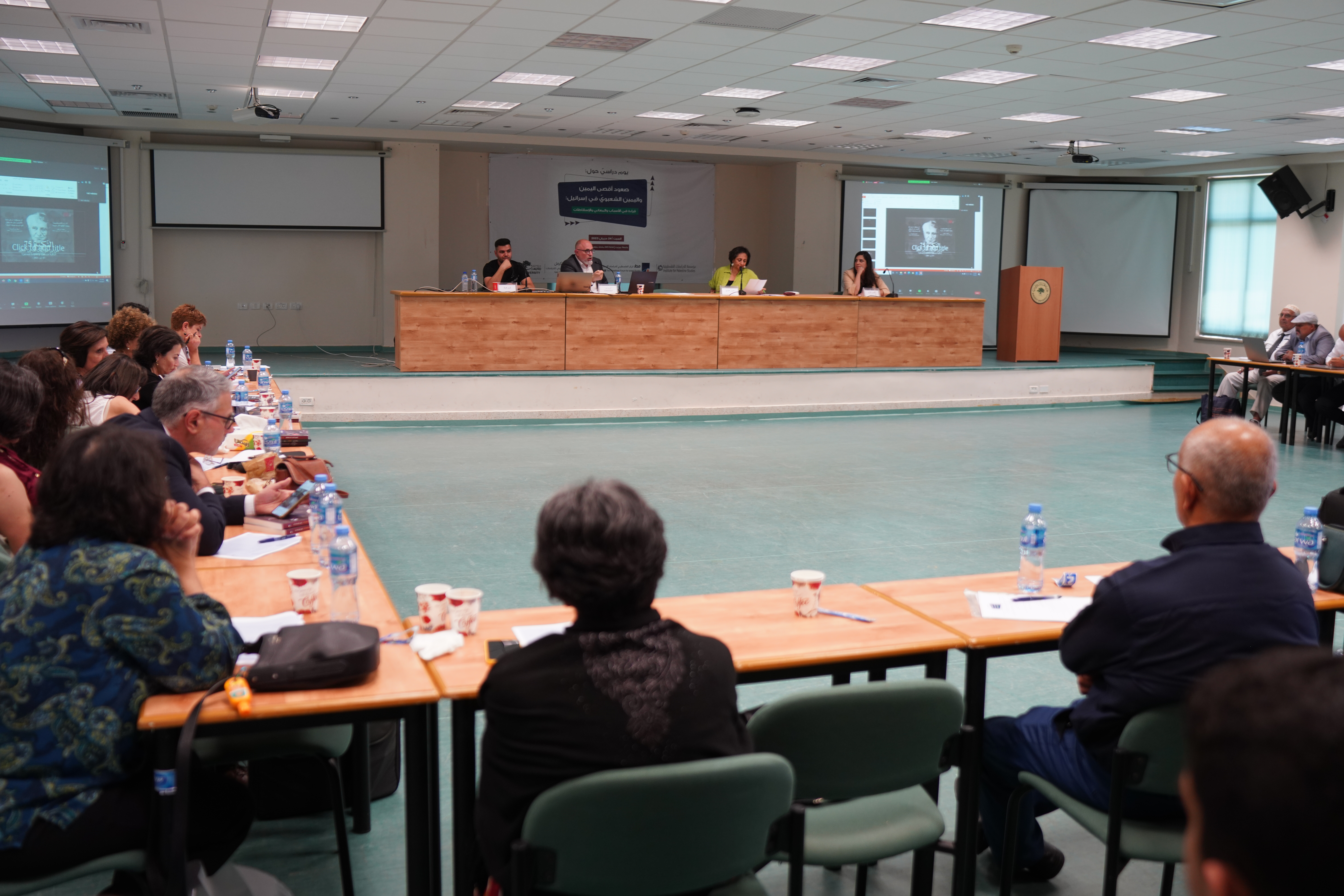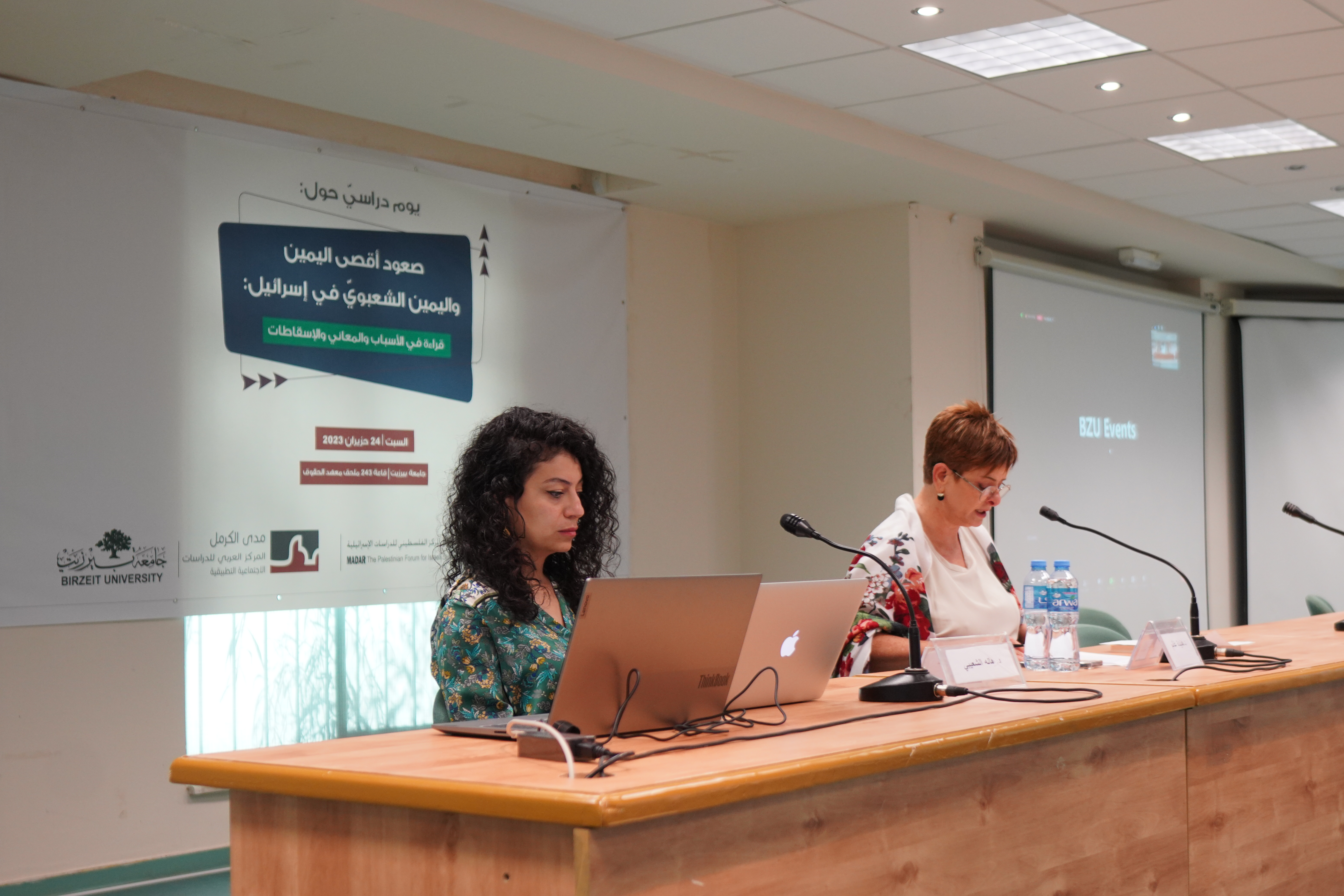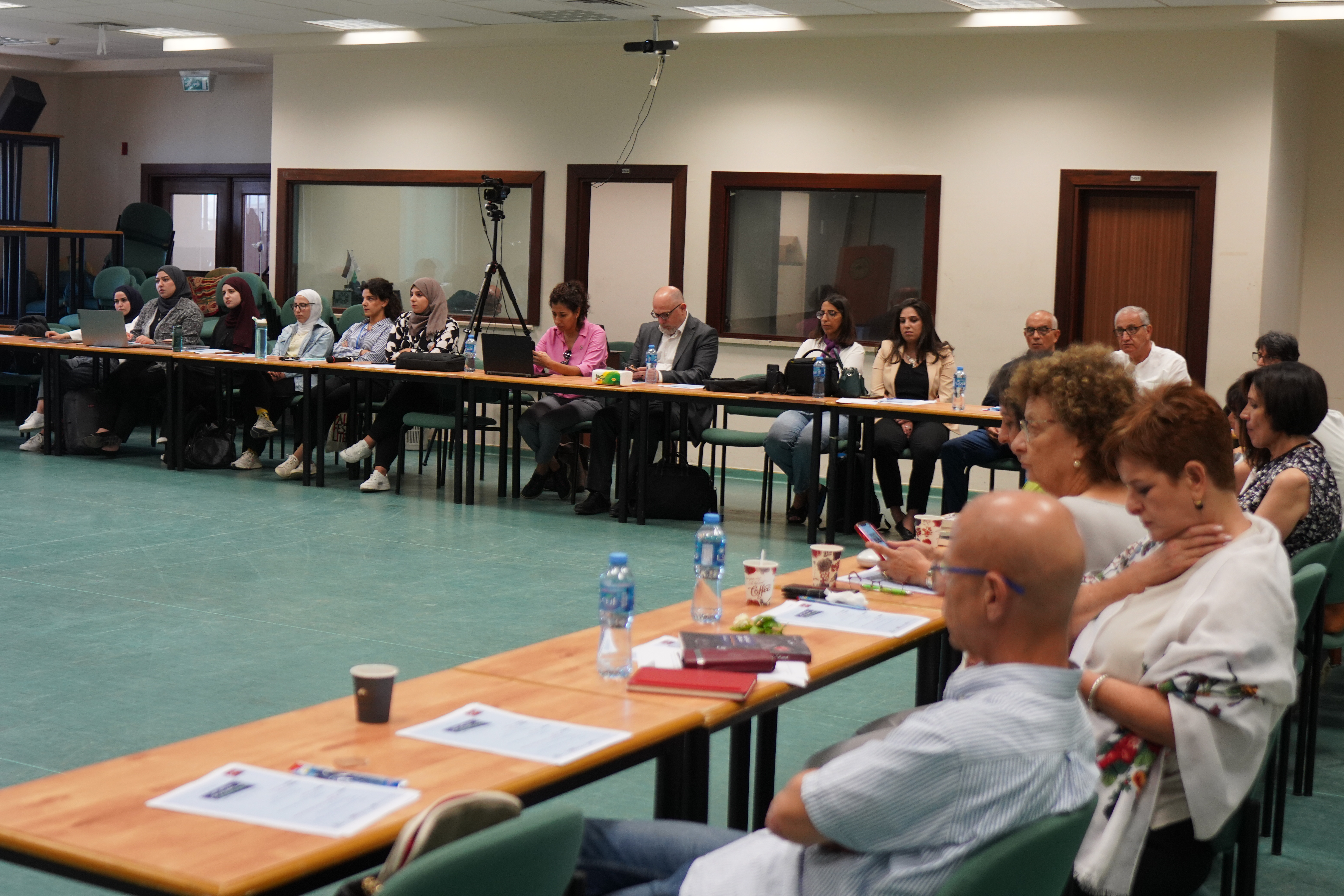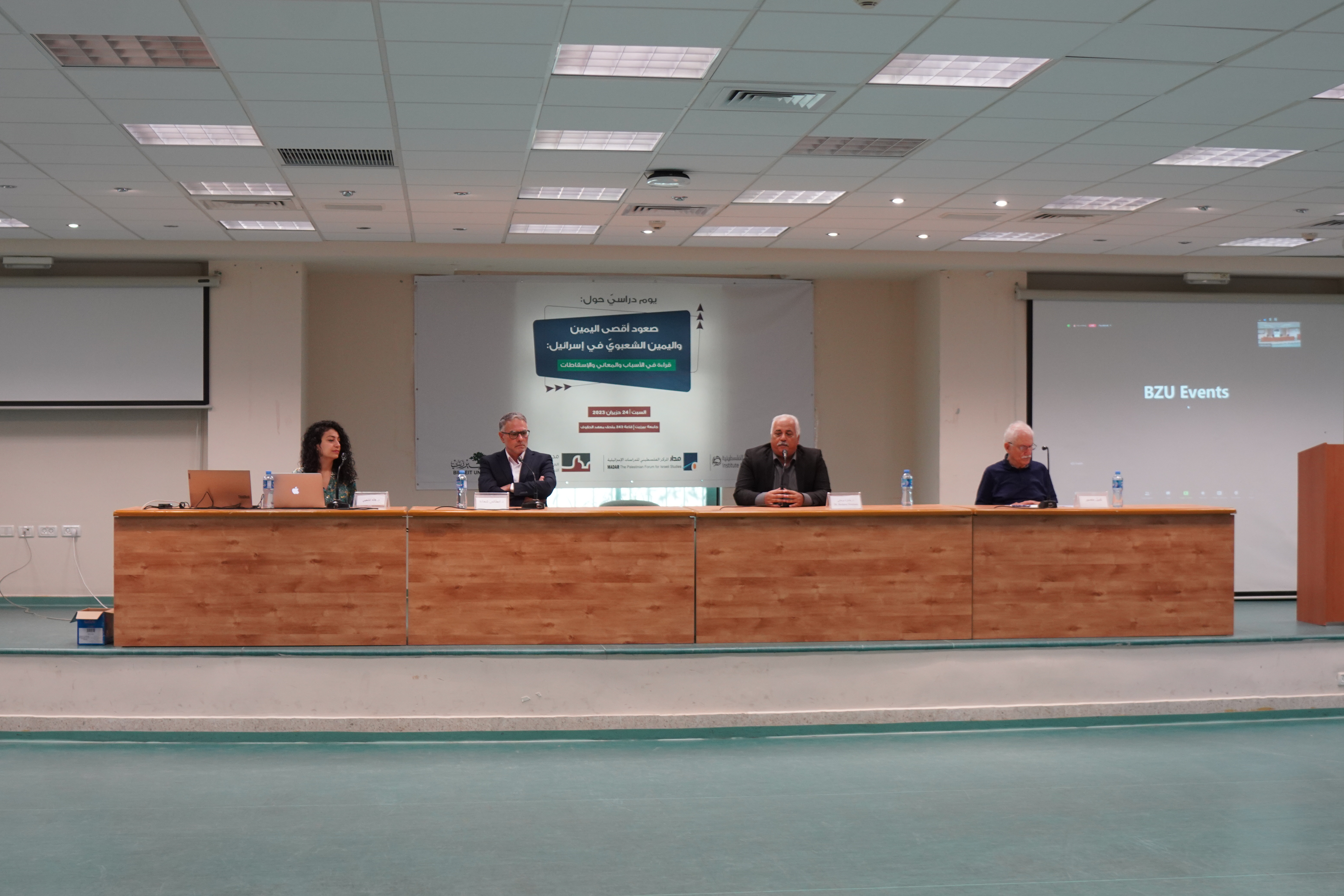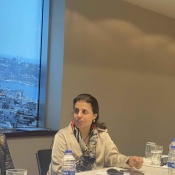Birzeit University organizes study day on rise of far right and right-wing populism in Israel
The Israeli Studies master’s program at Birzeit University organized a study day titled “The Rise of the Far Right and Right-wing Populism in Israel: An Analysis of the Causes, Meanings and Implications” in partnership with the Palestinian Forum for Israeli Studies (Madar), the Institute for Palestine Studies and the Arab Center for Applied Social Studies (Mada Al-Carmel). Held on Saturday, July 8, 2023, on campus, the study day featured researchers, academics and master’s students.
The study day examined various aspects of the rise of the far right and the populist right in Israel, the tools the right wing employs to achieve its political agenda, the ideology underlying its political movement, the impact of this rise on the Palestinian cause and struggle for liberation and the implications of the ascent of the far right to power.
The event was opened by Dr. Ahmed Abu Hanieh, dean of the Faculty of Graduate Studies and Research, on behalf of Birzeit University President Dr. Beshara Doumani. Dr. Abu Hanieh stressed the significance of examining the Israeli Zionist project as part of the Palestinian national struggle for liberation, highlighting that Birzeit University did not spare any effort in this domain.
Dr. Mtanes Shehadeh, representative from the Arab Center for Applied Social Studies, discussed the role of these sessions in strengthening the Palestinian research efforts focused on studying the colonizer and the transformations in the Israeli society. He commended the wide-ranging and high-quality research papers submitted for the study day, stressing the necessity of establishing it as an annual tradition.
Dr. Camille Mansour, secretary-general of the Institute of Palestine Studies’ Board of Trustees, emphasized the significance of this collaboration between the four research institutions in enshrining the research on the Palestinian cause as a cumulative knowledge process, hoping that this conference would lead to understanding the factors that led to the rise of the extreme right to power.
The study day featured three sessions and an inaugural lecture delivered by Dr. Honaida Ghanem, director of the Palestinian Forum for Israeli Studies (MADAR). Dr. Ghanem elaborated on the emergence and the rise of the new right at a global scale, particularly in Europe. She also expanded on the close relationship between the European and the Israeli right, highlighting the peculiarity of latter, which cannot be separated from the colonial project.
She also elaborated on the factors that led to the emergence of new-right wing and populist parties, which foster extremist ideologies associated with Nazism and Fascism. Such factors, Dr. Ghanem explained, include the collapse of the Soviet Union, which led to the resurgence of ethnic national identities and the promotion of extremist ideologies.
Titled “An Analysis of Israeli’s Current Political Reality,” the first session was moderated by Dr. Hala Shoaibi, director of the Israeli Studies master’s program. Dr. Shehadeh expanded on the economic dimension of the rise of the right, while Razi Nabulse, researcher and political and social activist, explored the transformations in the Israeli political arena. Sawsan Zahr, lawyer specialized in human rights, spoke about the judicial reforms advocated for by the right and their relation to the Biblical vision of the Land of Israel.
Dr. Areen Hawari, academic and a feminist activist, moderated the second session, “Motives and Implication for the Dominance of the Right.” Ashraf Bader, researcher and PhD student in social sciences at Birzeit University, presented a critical reading of the rise of the right, whereas Lamis Farraj, researcher in economic and development policies, delivered a presentation on the impact of the right-wing economic policies on the Palestinian Authority. Karim Kurt, researcher at the Yabous for Counseling and Strategic Studies, expanded on the “Decisive Plan” put forward by Bezalel Smotrich, Israeli minister of finance and a minister in the Ministry of Defense.
Dr. Majdi Al-Malki, associate professor at the Department of Social and Behavioral Science, moderated the third session titled “Right-wing Ideology between the Past and Present.” Salam Abu Sharar, teaching and research assistant in the Israeli Studies master’s program, addressed the imagination in the ideology of the extreme right. Walid Habbas, researcher at the Palestinian Forum for Israeli Studies, expanded on the Ultra-Orthodox right-wing party, its beliefs and main characteristics. Abdul Qader Badawi, researcher at the Palestinian Forum for Israeli Studies, spoke about the aspirations of the right to create new forms of domination in Israel.
The study day was concluded with a presentation held by Alaa Salameh, researcher at the Palestinian Forum for Israeli Studies, on the relationship between the new right and the evangelical movement.

